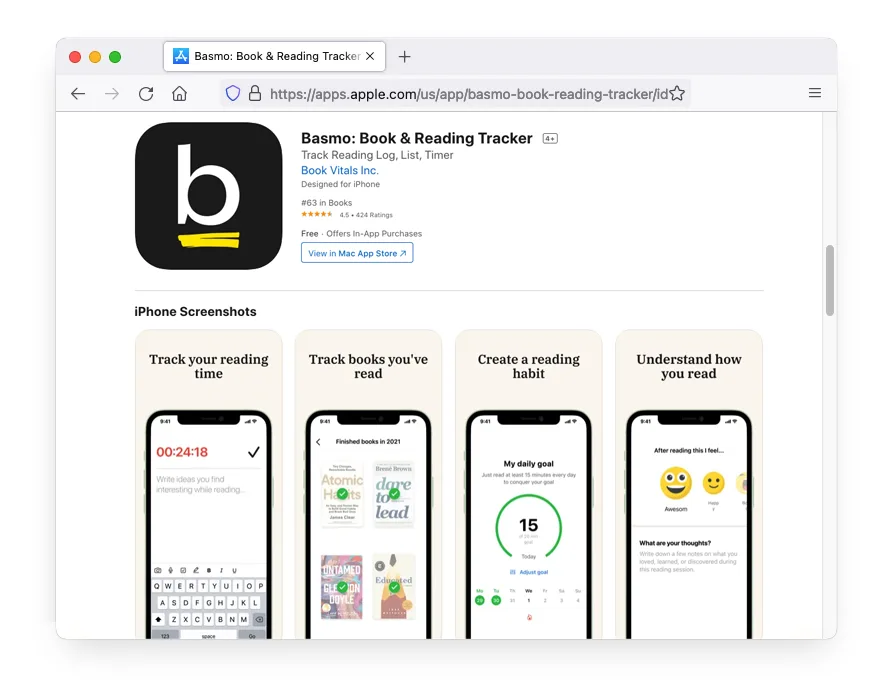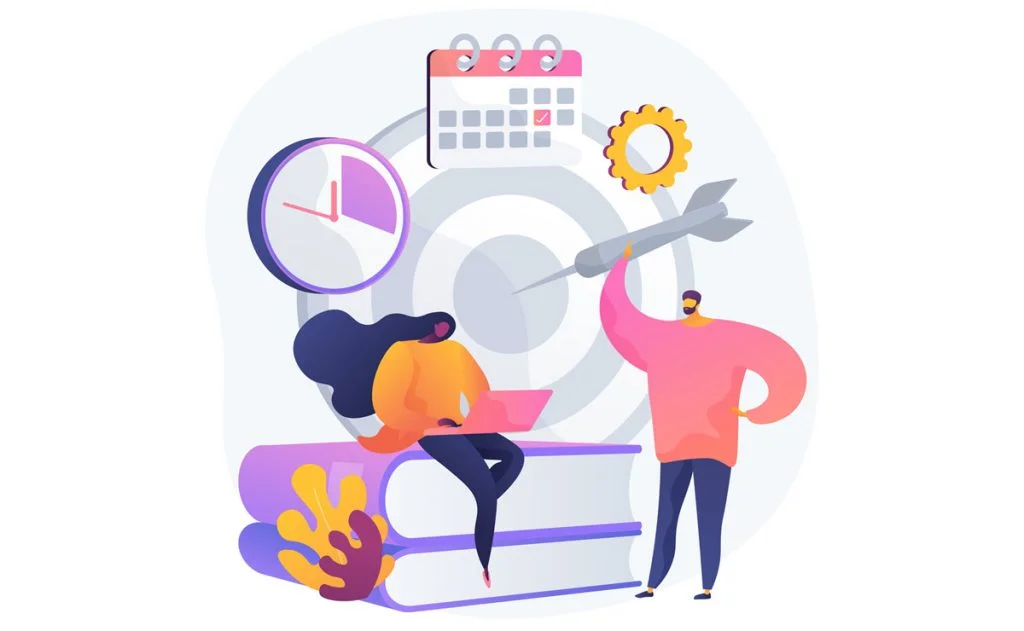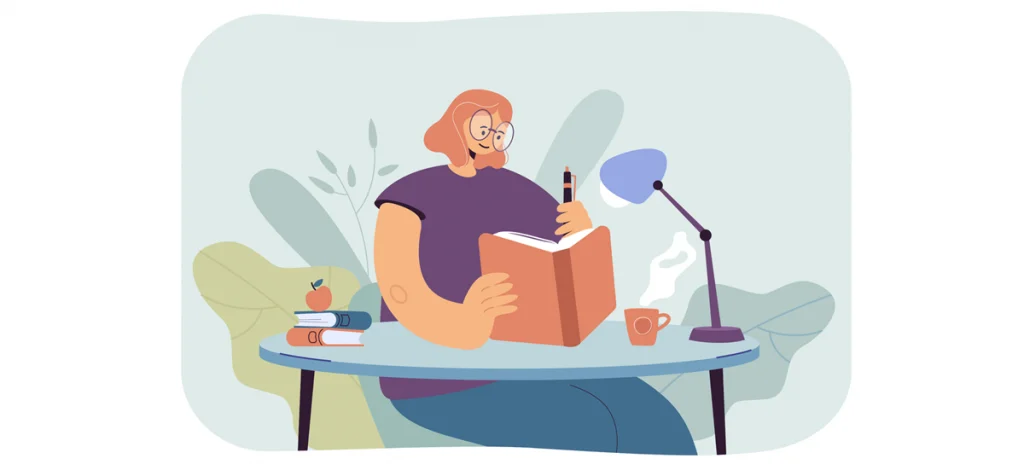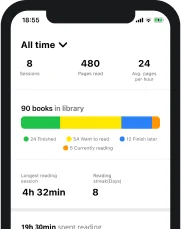Living in the times we live in comes with a series of benefits, but also with a couple of series drawbacks. Despite having, at least on paper, the easiest lives our species has ever had in its history from certain points of view (we don’t have to hunt for food, we have the power to heal ourselves through modern medicine, the dangers to our lives are minimal), there are other things that affect our well-being: stress, depression, anxiety, and other mental health issues are more common now than ever.
While the psychological benefits of reading are well-known for most of us, scientists are still trying to figure out the exact connections between reading and mental health.
Is reading good for your mental health?
With mental health as a concept covering such a vast area of our existence, the exact answer to this question can only be given by extensively analyzing the effect of reading on all the possible mental health afflictions. The general consensus among scientists is that certain mental health problems can be delayed, prevented, or even partially alleviated through reading.
Reading can be a form of therapy and it is being used more and more often as a form of stepped care. The concept of stepped care involves starting a patient’s therapeutic process with the least expensive and least invasive form of intervention and only moving on to the other possible treatments when the first step fails. Bibliotherapy (reading as a form of therapy) has been proven to be a very cheap, non-intrusive, and effective form of treatment for mild mental health issues.
Mental health these days seems to be somehow governed by an unsettling trifecta: stress, anxiety, and depression. These afflictions are more common than we might imagine, and statistics shed light on the harsh truth:
- 73 percent of Americans reach a level of stress that affects their mental health
- Anxiety disorders are the most common mental health issue in the United States, affecting over 40 million people, or over 18% of the population every single year
- 21 million adults in the USA (8.4% of the adult population) have had at least one major depressive episode in 2020
Why is reading good for your mental health?
The psychological benefits of reading extend to a vast area of our mental health, which makes reading a very healthy day-to-day activity.
The good news is that even though our lives are now more hectic than ever and reading usually takes a backseat in our list of priorities, we also have modern solutions to our modern problems.
The most important tool in a reader’s toolbox these days should be a reading tracking app like Basmo. This little wizard you get to install on your mobile device will come with a series of features meant to help you read more and better. Why reading more and better is important is pretty self-explanatory, but here are a couple of ways reading can improve our mental health.
Reading helps us relax
Saying that reading is a great way to relax after a hard day of work is pretty much old news. Studies have shown that reading can help us reduce stress, lower blood pressure and muscle tension caused by stress, and even lower our BPM. Our levels of stress and anxiety are closely connected to our mental health status, and that is why relaxation techniques and all kinds of different devices and methods have been lately invented to help us overcome the pressure and stress of our daily lives.
Reading is one of the cheapest and most rewarding relaxation techniques, and research has shown that it is actually a lot more efficient in relieving stress than listening to music or playing video games.
Reading improves brain function and health
A healthy mind comes from a healthy brain. Reading can help us maintain our brains in good shape. Despite the fact that their anatomical characteristics have nothing in common, our brain functions somewhat similarly to our muscles. Without exercise, it becomes weaker and loses some of its performance.
Research has shown that reading plays a crucial role in our structural brain development, by strengthening neuronal networks and connections. Brain connectivity is a clear indicator of the health level of our brains, and studies have shown that reading increases the level of connectivity, especially in our somatosensory cortex.
Reading improves emotional intelligence
A huge role in our mental health is played by our ability to cope with everything that is going on around us. How we interact with others, how we react to different life events, and how well we can handle the pressure of our jobs or day-to-day lives, all determine how mentally healthy we are.
Our emotional intelligence and our level of empathy can make a difference in how we perceive our existence, thus affecting our mental health overall. The better we understand the people around us, how they act, and why, the more understanding we have of how the world works and our role in it, the happier and mentally stable we will be.
Studies have shown that reading is not only improving our social cognition but also increases our emotional intelligence and makes us more empathetic. By exposing us to different life stories, and the thoughts of different characters, we learn to see the world through other people’s eyes, which helps us gain a much better understanding of the things happening around us, which in turn helps us achieve a more peaceful mind, a healthier mind.
Reading prevents old-age related mental diseases
The onset of age-related mental diseases or mental decline can be delayed or even prevented through reading, according to a study published by Cambridge University in 2020.
Including reading in our daily routine can have a positive effect on how our brain works, which in later life can be translated into a younger-looking, better-functioning brain. Mental decline and diseases like Alzheimer’s and dementia can be delayed or even prevented by something as simple as a healthy reading routine. Reading and mental health statistics following a different study from 2013 have shown that age-induced mental decline can be reduced by as much as 32%.
Reading can help us escape our day-to-day lives in a healthy way
Escapism, defined as a tendency to distract ourselves and seek relief from stressful, unpleasant real-life events through entertainment or fantasy, is a more and more often seen coping mechanism.
It can take many forms, from daydreaming about different realities, and watching endless hours of fantasy shows, to reading and allowing ourselves to escape the harsh reality by exploring the alternate universe presented by the author. Literary escapism can be a healthy choice in dealing with times when reality becomes overwhelming, thus helping us maintain a healthy mind, with the condition to use it moderately.
Does reading reduce stress?
As mentioned above, reading is a great stress-relieving tool that is handy to pretty much any of us. Reading and mental health research conducted in 2009 analyzed and compared several stress-relieving methods like yoga, humor, and reading, and concluded that reading is just as effective as any of the other methods compared.
The interesting results were that reading was proven to be more effective than taking a walk, playing a video game, drinking a cup of tea, or even listening to relaxing music.
How does reading reduce stress?
Understanding how reading can reduce our stress levels can help us tremendously in maximizing the benefits of our reading sessions. Adding this mindfulness to our reading will allow us to take advantage of more benefits in a more effective way.
Reading lowers heart rate and blood pressure
As little as six minutes of reading has been proven by a study conducted by the University of Sussex in 2009 to lower stress levels by 68%. The same study showed that reading a book is distracting enough to help us forget about stress and anxiety to the extent that our heart rate, blood pressure, and stress-induced muscle tension are reduced.
Distracts us from our day-to-day lives
While many rushes to call this a form of escapism, reading is actually a lot easier to explain than this. Without the negative implications of escapism, reading can help us leave the troubles of our day-to-day lives behind, without pulling us too far out of the reality of our existence.
The activity requires a certain level of focus and it simply keeps our minds busy with visualizing what we read and stimulates our imagination, while we leave our daily troubles behind.
It can amuse us when we’re down
They say that laughter is the best medicine, and luckily, reading can put a big smile on our faces. We can read funny books, wholesome stories, or simply things that we are passionate about. If we take the time to enjoy our reading sessions, by making them as comfortable and pleasurable as possible, reading can significantly improve our mood and state of mind.
Laughter, positivity, and a sense of satisfaction are things that can quickly devour the stress that has been eating us from the inside. Another study conducted on subjects aged 7 to 12 has shown that reading can make us feel more optimistic and hopeful, which leads to the safe assumption that by boosting our mood, reading can make us happier, and more relaxed, and can improve our mental health.
Does reading help anxiety?
Recently, a research team has studied the effects of bibliotherapy on the mental health state of the population during the SARS COV 2 pandemic. The results of the study have shown that reading can have a positive effect on the levels of anxiety people feel during particularly stressful situations.
Another study conducted in 2022 showed that reading stories can develop a positive effect on the mental health and well-being of adolescents. The Turkish research team has shown that reading fiction books can promote a level of awareness regarding other people’s feelings in the subjects and can improve problem-solving skills, which in turn helps reduce anxiety levels by simply providing a more positive and understanding way of thinking.
It is, therefore, safe to say that among other mental health benefits of reading books, lowered levels of anxiety are also one of the most common and important effects.
Does reading help depression?
Yes, just like in the cases of anxiety, reading can have a positive effect on the symptoms of depression. As a matter of fact, the studies cited above both involved implications of reading on depression, and the conclusions were irrefutable: reading fiction especially alleviates the symptoms of anxiety and major depressive disorder.
Reading can help in more ways than one actually. Not only reading fiction can work wonders in the way we feel, but we can also focus our reading on actually trying to solve the mental health issues we are facing.
There are many self-help books out there that can help us better understand depression, its effects, and how to deal with it in a healthy fashion. Whether you’re looking for clear instructions, a way to better understand the condition and how to overcome it, or simply to read about specific causes of depression (such as grief or leaving behind a long-term relationship with a loved one), these books can work wonders.
How to improve your mental health through reading
Since the only conclusion we can come to is that reading is a pillar of improving our mental health, the next natural question is how can we read more? Our lives are busier than ever before, our free time is almost non-existent, and distractions are at an all-time high.
Reading more is a goal for most of us, and luckily for us, there is now a modern solution to help us: reading tracking apps like Basmo.

Basmo is a tiny little wizard that can be installed on any smartphone or other mobile device that acts as our personal reading assistant: it can track our reading, help us read more, and provide us with statistics about our reading habits and ways to improve them and develop healthy reading habits that last a lifetime.
How can we create healthy reading habits with Basmo that lead us to read more, quicker, and better?
Setting reading goals
The first step in developing a healthy habit, in general, is to start by getting yourself motivated and understanding your personal goals. When it comes to reading, the best way to set your goals is through Basmo.
The app allows you to set two different types of goals: a daily goal for the time you spend reading every day and a yearly goal for the number of books you get through within a year. Both can be easily set through just a couple of taps and, as you go, the app will track your progress towards meeting your goals.
This will make it easier for you to keep your performance under close observation, to step it up if you notice you’re falling behind, or adjust your goals if you realize you’ve underestimated your reading capabilities.
Creating a reading schedule
To make sure you do meet your goals, tracking your progress is probably not going to be enough. Adding some structure to your reading habits and being organized is going to play a huge role in whether you are going to be successful or not.
Having a reading schedule can completely change your perspective and how you approach your reading sessions.
Creating a schedule with Basmo is easy and efficient. You can select the days of the week you want to do your reading and even different times of day for each selection.
That way you can ensure that you schedule your reading sessions according to your general daily routine. Basmo will also remind you of your upcoming reading sessions through gentle notifications, to make sure you never skip a reading session just because you forgot about it.
Tracking our performance
Ultimately, a healthy reading habit means understanding your performance and what you can do to improve it.
For that, Basmo provides you with insightful statistics that are just a couple of taps away.
Analyze your reading speed, how much reading you manage to get done in certain timeframes, how often you read, and how it makes you feel (Basmo also allows you to track your emotions by prompting you to select a mood after each reading session).
Tracking your emotions
While reading more is clearly a good thing to wish for, that is not always enough. More doesn’t always mean better, and that is another thing Basmo is here to help with.
Having a short, top-quality reading session can sometimes do more good than spending countless hours reading without a purpose or simply reading the wrong thing.
Basmo helps you keep track of your emotions while reading.
After each reading session, you will be prompted to select an emoji that best describes your mood.
That way, looking back on your weekly emotional report, you can have a better idea about the way a certain book influences your mood and adjust your reading accordingly in the coming weeks.
On top of this, the journaling feature also helps you go even more in-depth with your reading and the understanding of your emotions. We encourage you to spend a couple of minutes after each reading session to reflect on what you read and how you feel about it and write down your thoughts in the reading journal. It will completely change the way you read and it will provide you with a more mindful and efficient reading experience.
Give Your Reading Experience
An Extra Boost With Basmo
Track the books you read, monitor the time you spend reading and keep notes on your reading habits and how it makes you feel. You can set yourself targets for the time you spend reading and you can get notified whenever you’re behind on your reading time.
Final thoughts on reading and mental health
The psychological benefits of reading are overwhelming, to say the least. With positive effects on anxiety, stress, depression, and other mental health ailments including age-induced mental decline, reading can be a solution for a lot more problems than we could have ever imagined.
If you’re willing to give bibliotherapy a try, make sure to use Basmo as well, to enhance your reading performance, and to make sure you reap as many reading benefits as humanly possible.
Sources:
https://www.ncbi.nlm.nih.gov/pmc/articles/PMC2777585/
https://www.therecoveryvillage.com/mental-health/stress/stress-statistics
https://adaa.org/understanding-anxiety/facts-statistics
https://www.nimh.nih.gov/health/statistics/major-depression
https://www.ncbi.nlm.nih.gov/pmc/articles/PMC4128180/
https://www.ncbi.nlm.nih.gov/pmc/articles/PMC6625563
https://www.ncbi.nlm.nih.gov/pmc/articles/PMC4733342/
https://pubmed.ncbi.nlm.nih.gov/23825173/
https://www.tandfonline.com/doi/abs/10.1080/08893675.2019.1639883
Emotional intelligence vector created by pch.vector – www.freepik.com







